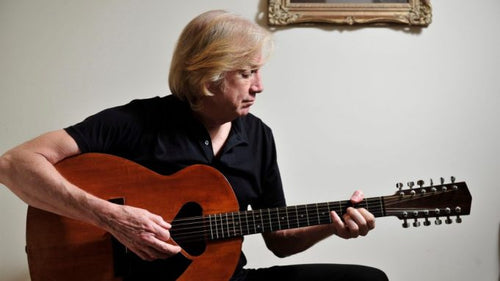
From Justin: ‘We’re Going Home’
At the end of a really long tour (I think this year's July/August tour was possibly the longest The Moody Blues have ever done in one go), there is usually a feeling of general euphoria in the air as well as “we’re going home!” vibe. This summer we were all rather quiet on the bus during the last week of the tour and I think we all felt that parting was a bit sad, a sweet sorrow.
Many crew guys don’t look forward to the end of a tour, and a few, because they work so much of each year on the road, don’t really have a family life to go back into. A lot of techs and crew are gypsies (metaphorically) – and I’ve come to realise I’m a bit of a gypsy myself.
There is no doubt that an extremely strong and loving bond develops in the course of a tour, and I have never experienced that anywhere else. We rely so much on each other to play our parts physically and emotionally, and we have to be a strong link in the chain.
A very good friend of mine is a personal fitness trainer, and this year he was asked by one of the most famous international rock groups to join their tour for the whole summer and to keep the band in good shape. He had never been on the road before and he asked me what to expect and to anticipate. His planning mostly concentrated on his fitness programmes and how to implement them, but in truth the most important advice I could give him was that he should know to whom he was directly responsible – in other words the person above him in the chain of command, and to know who was immediately below. The worst thing on tour is ‘not knowing’ – whether it’s leave time to bed time, asking for a cup of tea, making tea or changing a valve - there is someone who is responsible for that, just as there is a responsibility to put your heart into playing a great gig, every gig. You need to know that and to live it. My experience is that a tour will work beautifully – as most Moodies tours do – with a clear well-ordered machine. I think we really do have the best crew in the business – the groups not bad either!!
FLY ME HIGH
I had written ‘Fly Me High’ quite some time before the telephone call that brought me to the group came from Mike Pinder in the summer of 1966. I’d been performing the song in folk clubs and small gigs, without much enthusiasm from any audience I have to say. It just emerged out of a guitar phrase on my big old 12-string (see the story of this guitar in an earlier web update) and unfortunately the song was pretty impenetrable for any other backing musician (I did try it on a pre Moodies session – it didn’t work!).
Anyway, ‘Fly me High’ was one of the songs we did onstage as soon as I was in the band. We all liked it but there was something incomplete about our version that we couldn’t put our finger on.
In the winter of 1966/1967 we were offered 3 hours studio time in Decca No2 at the famous Broadhurst Gardens recording studios. (The stunning and huge Decca No 1 studio, that Sir Edward Lewis, the owner of Decca, gave us later to be our own, was directly above it on street level in the same building). The whole vast complex consisted of three recording studios, a number of workshops, a mastering suite and offices as well an in-house restaurant and real echo chambers built on the roof. The building was originally West Hampstead town hall.
Our session was booked for a Saturday morning, and when we arrived and began unloading our Vox amps and Graeme’s fabulous Ludwig kit into the studio (this was way before the Mellotron) we were met by a thin, wiry, intelligent and studious looking young man who introduced himself Tony Clarke, a Decca staff producer who had been given the dubious responsibility of recording a couple of tracks with us in 3 hours that day. Most staff producers didn’t want to work on Saturdays, especially after a week of slaving away with various hairy, scruffy, stoned and loud rock musicians. Relaxing in the No 2 control room, sitting with his feet up on the recording desk reading the morning paper, was Gus Dudgeon. (If you don’t know look him up!).
In Decca No 2 there was a great sounding Steinway piano that had been played on hundreds of important recordings. It had also been bashed, battered and abused for years, and had a lot of rather nasty looking fag burns on the top end white keys. But many exceptional players would only use this piano on their recordings because of it’s bright and lively fast quality and it was the perfect example of the simple fact that if an instrument is played every day it just sounds better and better. Mike Pinder always loved it!
We started to routine ‘Fly Me High’. Tony liked the sound of the twelve string guitar and we did do a couple of takes with Gus still reading the paper and still with his feet up on the desk, occasionally pushing the faders with his shoe and reaching over with one hand to put the machine into and out of ‘record’. It was all pretty average and unexciting and then Tony Clarke, with his finger on the talkback button as he talked to us through the glass, had the immense courage to say so. At which point Mike absolutely and quite vocally agreed with him. Tony came back out through the double doors from the control room to the studio where we were all standing about wondering what would happen next. Tony said to me “What would it be like if you slowed it down quite a bit and put some breathing space into the riff?” (He loved the riff itself) “Maybe you could play it less frantically, more angularly, with clarity and space?”
I was not going to argue with anyone on this one - it was obvious it wasn’t working! As I may have mentioned before (sorry), it’s my experience that if someone really believes in a direction then we go with their feeling.
Mike immediately got me to play it Tony’s way round the fag stained piano and he set the tempo. At once he came up with the distinctive stabs on that great little Steinway and between us all we arrived at the piano left hand phrase that helps make the piano/12 string sound so cool. Graeme shouted from the drum booth over on the side of the room “Hey I’ve got a much better bass drum pattern for it – listen to this!” It fitted perfectly and John put the bass line into the drum part that made it sound completely cohesive and tight.
By now, I noticed that Gus had put the paper down in the control room and was actually enthusiastically fiddling with the faders and equipment getting an absolutely brilliant sound on Mike’s piano. He was into it! So were we all. The next few minutes was filled with that ecstatic joy that only happens when you know you’ve got something good and that its being recorded there and then – very, very rare. We had been working on the harmonies and backing vocals from our ‘original’ version and now we heard them differently. I now did a rising line, Ray worked out a descending line around mine starting slightly later so overlapping it and John came up with a high counterpoint that completed the vocal interaction.
When we had captured the basic track on tape as well as the lead vocals and the harmonies (recorded together all at the same time), we were all in a mad state of elation. Gus joined in and suggested handclaps using Decca’s superb echo chambers to the best effect. All seven of us loved the whole thing and the elation in that studio was wonderful.
We went on to record “Cities” in that session, another song that I had written a couple of years before the band, and this got recorded very quickly as we had been playing it for some time for our own pleasure (I’m not sure if we played it on stage as it was so dependant on the sound of the 12 string which often had difficulty being heard at live gigs, but I do have a distant memory of it doing it live) but we knew that “Fly Me High” was ‘the one’. “Cities” went unreleased for quite some time afterwards before surfacing as a B Side.
“Fly Me High” really was the beginning for us – it was the moment when we all first knew we really did have something magical between us.
It went on to be picked up by the BBC, who used the 12string/piano riff as a jingle for a while before the introduction of Radio 1, and it was a solid favourite of our early pre-melotron stage show, surviving through our disastrous cabaret venture (when we absolutely learnt we weren’t destined for cabaret - thank goodness!), on into our “DOFP” era and on to the set list of the early USA tour.
The track is also an example of how to use the studio equipment, with compressors, echoes and even the recording machines themselves as part of the sound. It’s not just what’s played. How it was recorded and produced is just as important.
And the song itself of course.
I miss you Gus
Love Justin
You must become an ignorant man again
And see the sun again with an ignorant eye
And see it clearly in the idea of it.
Wallace Stevens. (1879 – 1955)
